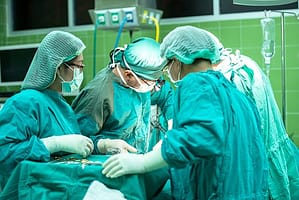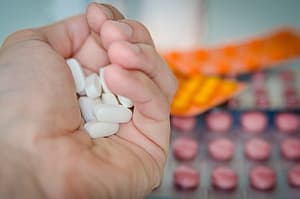Breast augmentation is perhaps the best thing that has ever happened to the feminine ones. Other than enhancing the size and volume of the breasts, it improves its shape, restores its fullness, corrects its asymmetry, provides a subtle lift for it’s sagging and allows a woman to feel sexier and more womanly. Sadly, some women who have had successful breast augmentation fail to handle the healing process.
Well, after surgery there isn’t much a doctor can do other than occasionally monitoring the healing process. The buck stops with the patient, and the success of the whole surgery depends much on how the healing process is handled. This is a no-brainer, many patients just don’t follow the straightforward instructions. Instead, they do what they think is meaningful and totally disregard the doctor’s advice. 
Here are some post breast augmentation tips for faster healing
Honor follow-up appointments
This suggestion seems to be obvious, but for no good reason, some patients don’t keep all of the follow-up appointments. If your wound is healing well and you’re feeling good, a follow-up appointment may seem a waste of time and money. But, don’t you know that your physician knows better and would love to see you through the healing to full recovery. Additionally, he’ll be on the lookout for some things that you may not be aware of, and you can’t see. Things like if the incision isn’t visible. A surgeon may recommend a follow-up blood work. He may also detect or see some infection and prescribe a remedial measure. Your medication may also require an adjustment for some weeks after surgery.
Live a simple life after surgery
Before coming in for the surgery, kindly make arrangements to ensure that your post surgery life will be as simple as possible – at least for some weeks. Maybe you can prepare meals in advance, iron your clothes, clean the house prior, choose tops that you don’t have to struggle to get into or pull off with effort over your head, bring things in high shelves down to avoid straining or just hire someone to take care of your daily chores
Take medication as directed to control your pain
 Keeping the pain under control is invariably vital after surgery. Some patients just don’t take their painkillers as prescribed. Some fear getting addicted, others feel that it’s a sign of weakness, and still, others don’t like drugs or how drugs make them feel. What they don’t understand is that they are exposing themselves to further infections. Do you know that if you’re in too much pain to cough, then you’re at high risk of catching pneumonia? Or, that if you’re in too much pain to walk, then you’re at risk of catching pneumonia and blood clots? Well, now you know.
Keeping the pain under control is invariably vital after surgery. Some patients just don’t take their painkillers as prescribed. Some fear getting addicted, others feel that it’s a sign of weakness, and still, others don’t like drugs or how drugs make them feel. What they don’t understand is that they are exposing themselves to further infections. Do you know that if you’re in too much pain to cough, then you’re at high risk of catching pneumonia? Or, that if you’re in too much pain to walk, then you’re at risk of catching pneumonia and blood clots? Well, now you know.
Other vital tips to faster healing include; drinking ample fluids so to avoid dehydration and constipation, take at least one week off from work, restrict physical exercise to light walking, don’t drive for a week after surgery, ensure that you sleep with several pillows under your head in a slightly inclined position and 1 to 2 pillows right under your knees for the first 2 weeks





